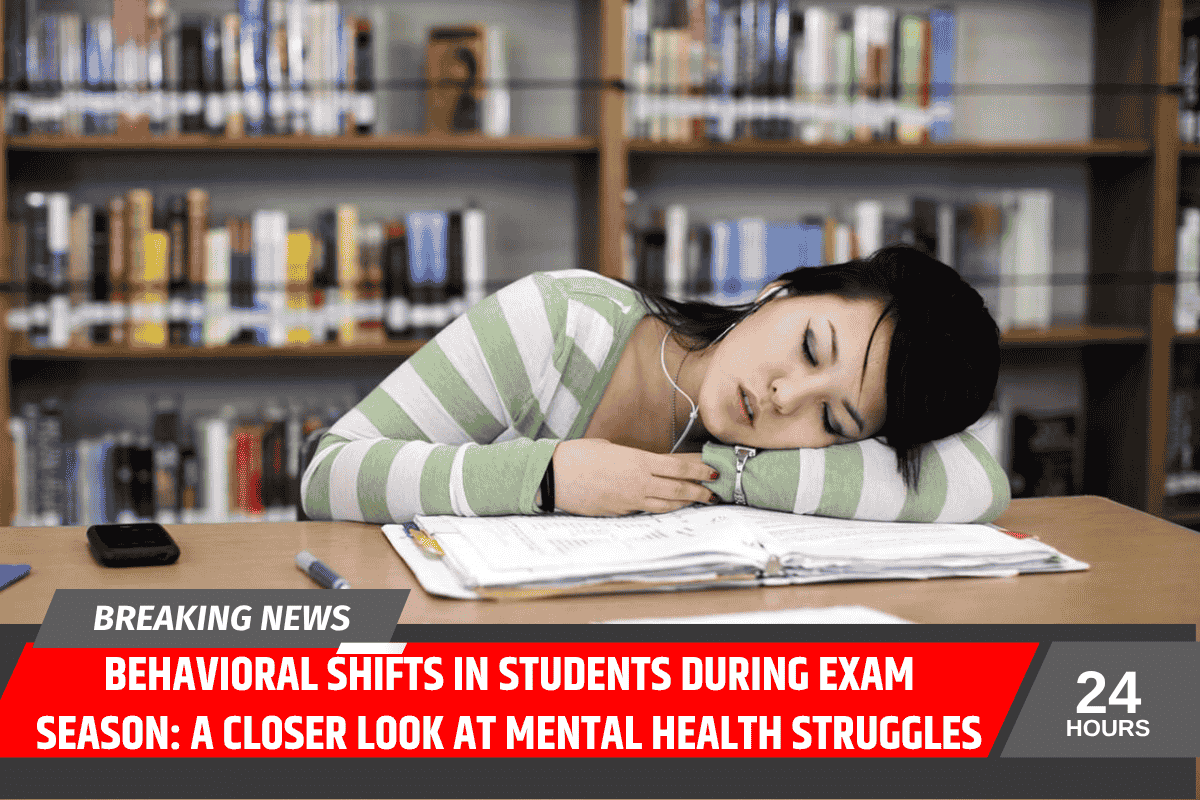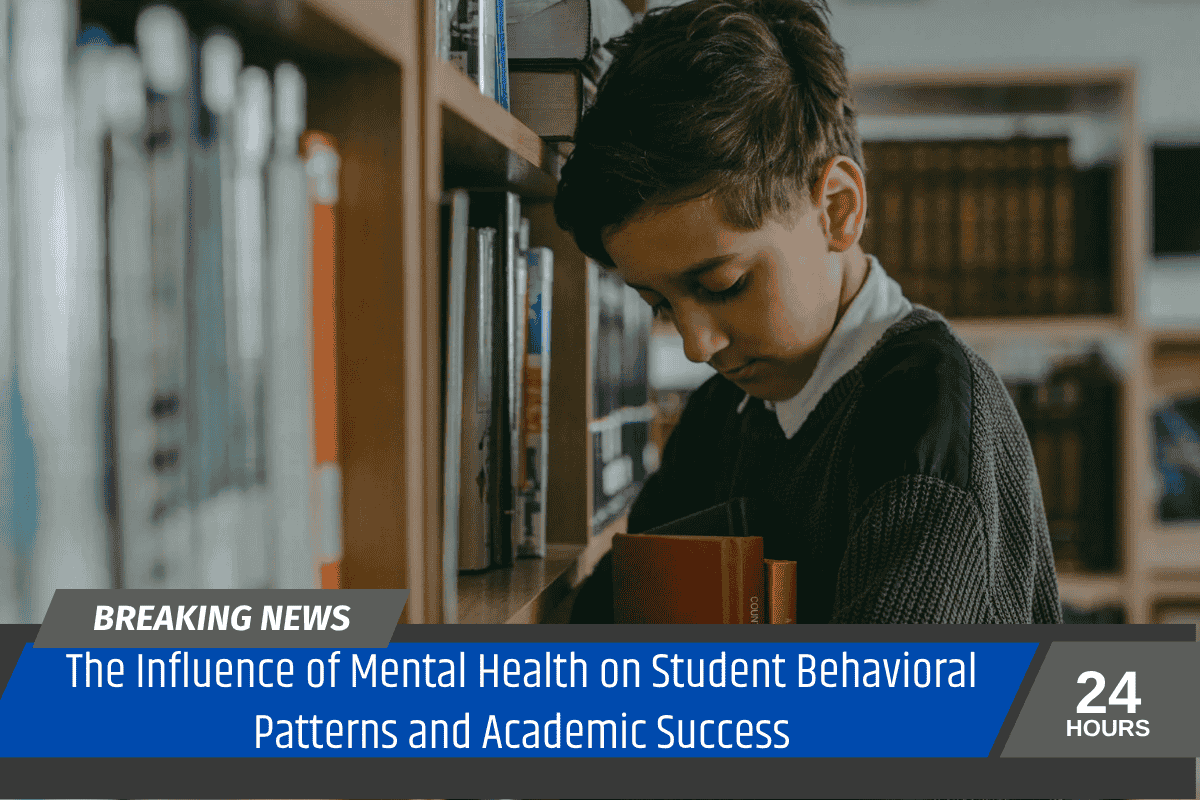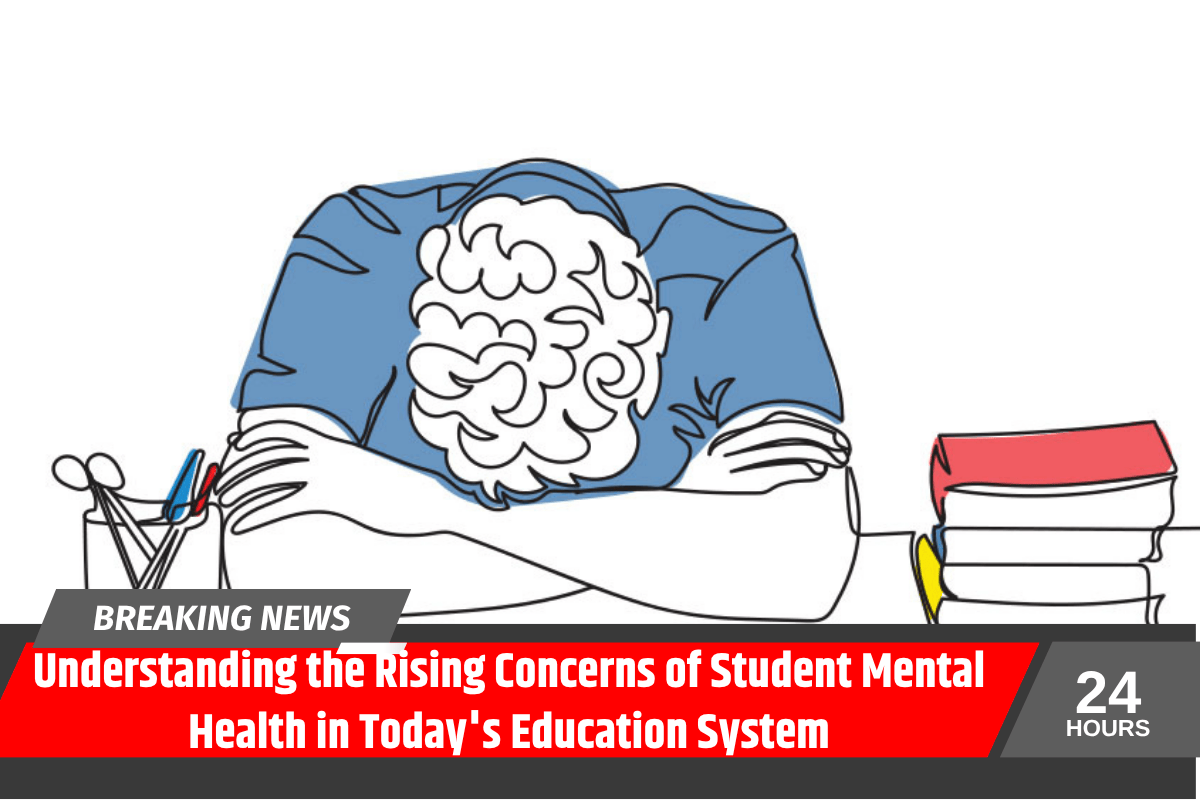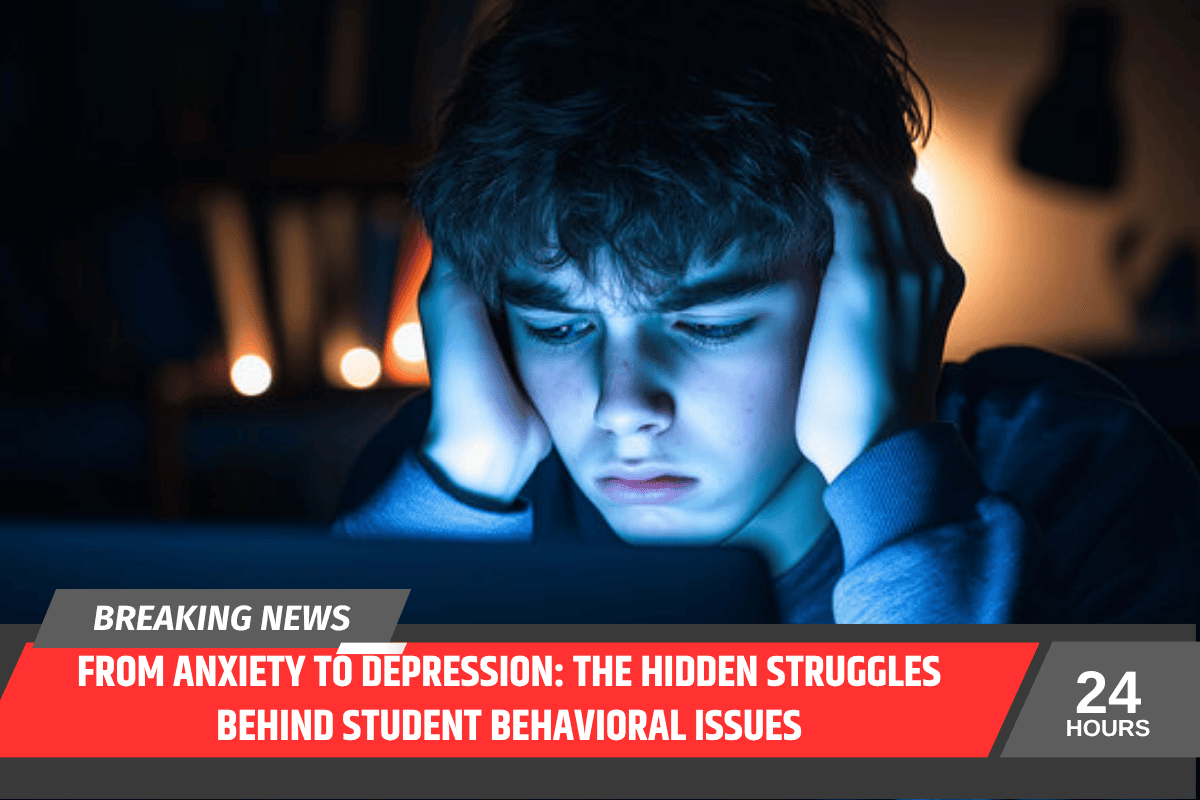Exam season can be a stressful period for students. Whether it’s the pressure to perform well or the constant feeling of being overwhelmed, it’s a time when students experience various behavioral and emotional shifts.
The increase in stress and anxiety can have a significant impact on their mental health, often leading to a mix of emotional and physical changes. In this article, we will explore how students’ behavior changes during exams and why these shifts often reflect deeper mental health struggles.
The Pressure of Academic Expectations
For many students, exams are seen as a make-or-break moment for their academic future. There is often intense pressure to perform well, whether it’s to meet family expectations, secure a good college admission, or maintain high grades. This pressure can cause students to experience anxiety, which may result in changes to their behavior.
Some students become withdrawn, avoiding social activities or interactions with friends and family. They may focus entirely on their studies, isolating themselves in the process. While some students may thrive in this focused environment, others may find it mentally draining, which can lead to burnout and exhaustion.
Anxiety and Stress: Common Triggers During Exam Time
Anxiety is one of the most common mental health struggles faced by students during exam season. The fear of failure, coupled with the constant pressure to excel, can create feelings of panic and insecurity.
This often manifests in various ways, such as difficulty sleeping, constant worrying, or feeling restless. Students might also show physical signs of stress, such as headaches, stomach problems, or even skin breakouts.
One significant change observed during this time is the shift in eating habits. Some students may lose their appetite due to nervousness, while others may overeat as a way of coping with stress. This behavior can further contribute to physical and emotional imbalances, making it even harder for students to perform well.
Lack of Sleep and Its Impact on Mental Health
Another behavioral shift seen in students during exams is a change in sleep patterns. Many students stay up late studying, resulting in inadequate sleep.
Sleep deprivation can have serious consequences on a person’s mental health, including irritability, reduced concentration, and emotional instability.
When students don’t get enough sleep, their ability to retain information and think critically declines. This leads to frustration and even more anxiety about the upcoming exams.
The lack of rest creates a vicious cycle, as students feel the need to study even harder to compensate for the sleep they missed, further worsening their mental health.
Social Withdrawal and Isolation
As exams approach, many students begin to withdraw from social activities. Whether it’s skipping out on events with friends or avoiding family gatherings, the focus shifts entirely to studying.
This social isolation can contribute to feelings of loneliness and alienation, which are often exacerbated by the stress of exams.
For some students, this withdrawal becomes a coping mechanism. They may feel like they are not able to handle the emotional demands of social interactions while also dealing with the stress of studying.
The lack of social connection can lead to feelings of depression and anxiety, further affecting their overall mental well-being.
Coping Mechanisms: Healthy vs. Unhealthy Responses
Students often try to find ways to cope with the stress of exams. Some may turn to healthy methods, like exercise, meditation, or talking to friends and family for support. These coping mechanisms can help relieve stress and improve mental clarity.
However, many students tend to rely on unhealthy coping mechanisms, such as procrastination, excessive caffeine consumption, or even using substances to cope with anxiety.
Procrastination can become a major problem, especially when students leave studying until the last minute. This leads to even more stress and a decrease in the quality of their work.
In some cases, students may turn to unhealthy substances to manage their anxiety, which can have a long-term impact on their mental health and academic performance.
Addressing Mental Health During Exam Season
It’s important to recognize the signs of mental health struggles in students during exam season. Schools and universities can play a critical role in supporting students by providing mental health resources, including counseling services and stress management programs.
Creating an open environment where students feel comfortable talking about their mental health struggles can help reduce the stigma surrounding mental health issues.
At home, parents and guardians can offer emotional support by creating a balanced environment that encourages healthy study habits and self-care. Encouraging students to take breaks, get enough sleep, and maintain a healthy lifestyle is essential during this stressful time.
Exam season can take a toll on students’ mental health, resulting in behavioral shifts that are often linked to stress, anxiety, and sleep deprivation. While some students cope well with the pressure, others struggle with feelings of isolation, burnout, and frustration.
It’s essential to recognize these signs and provide appropriate support to help students manage their mental health during exams. By encouraging healthy coping mechanisms, promoting self-care, and creating a supportive environment, students can navigate exam season in a more balanced and mentally healthy way.






